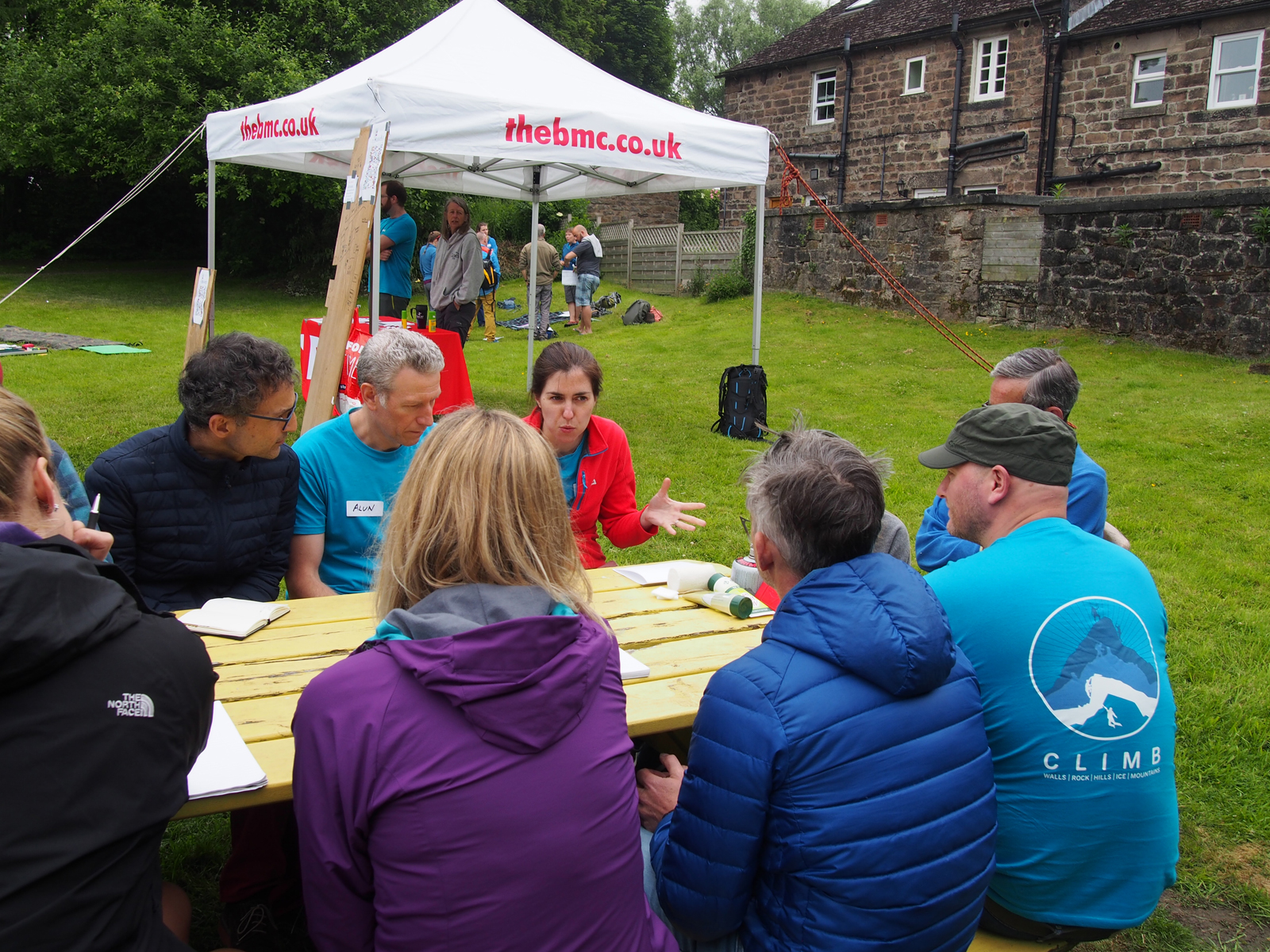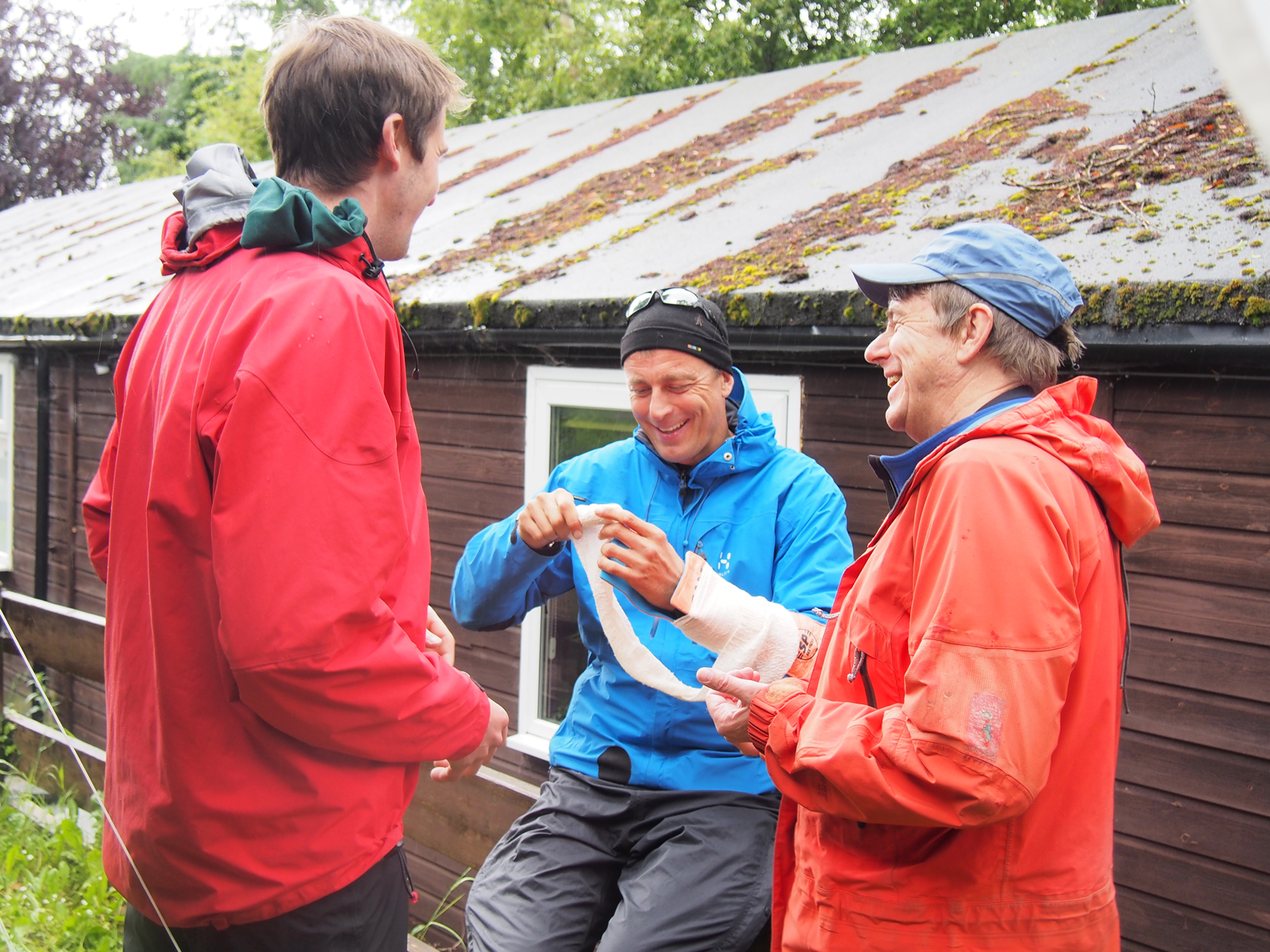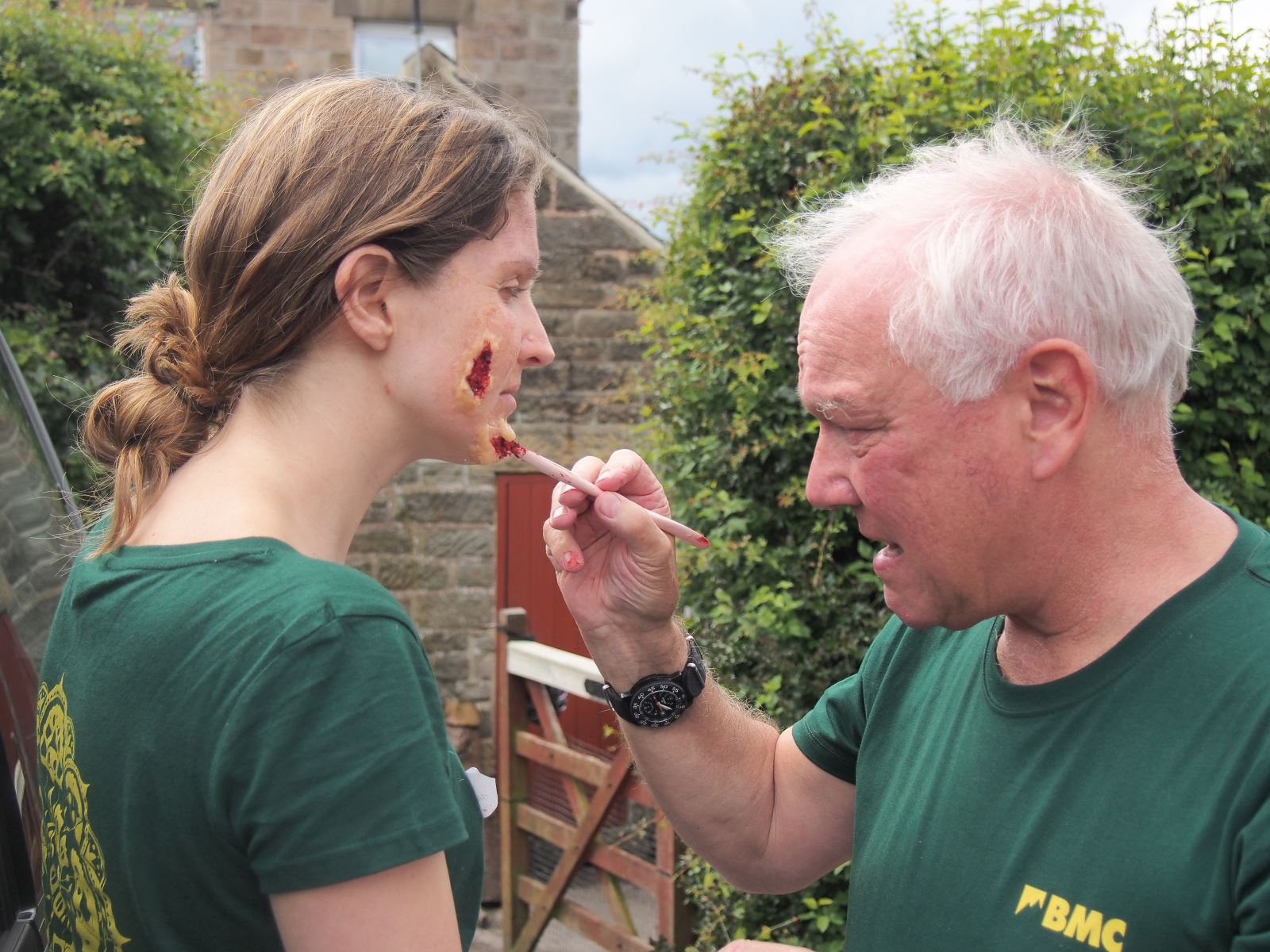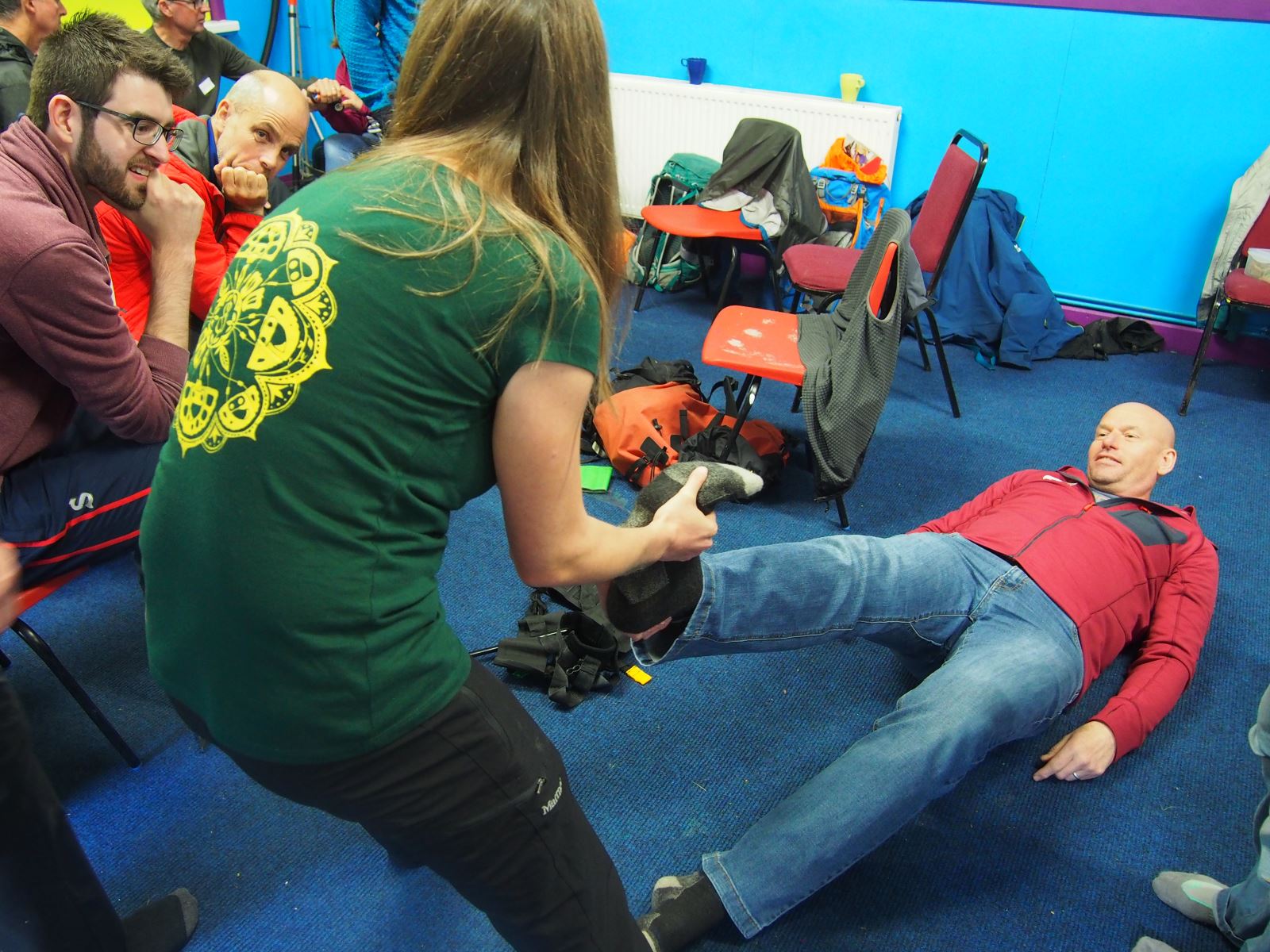BMMS Advanced Mountain Medicine and Off-Piste Skiing Course, Meribel 18th-25th January 2020
Eighteen of us participated in the BMMS advanced mountain medicine and skiing course, sixteen in the fantastic Chalet la Chouette and two in Chalet Belmont next door. To say that the chalets are comfortable would be an understatement- they are luxurious. The chalet hosts were lovely and the standard of catering exceptional.
The participants were a varied bunch- physicians, intensivists, surgeons, anaesthetists, general practitioners, portfolio career doctors and even a psychiatrist. There were also three non-medics: a gardener/horticulture student, an agricultural advisor and an outdoor instructor. Our day usually began with information given out at breakfast about a case for us to discuss during the day, on the lifts and at lunch stops. We had one day free skiing so we could orientate ourselves and find our ski legs and then five mornings of skiing and mountain awareness training provided by instructors from New Generation Ski School.
Snow conditions weren’t the best (the last significant dump had been two weeks previously) but our instructors knew the area well and found us skiable off-piste, some of it relatively untouched powder, every day. We divided into three groups, roughly by skill level (I insisted on allocating myself to the middle group, though I suspect there were better skiers in the lower group) and reports were that all groups had a great time. After lunch we were free to ski as we wished, unless we had a scenario scheduled or on the Wednesday when we had the instructors all day for a tour/mountain journey.
There were three scenarios on the hill over the week: an avalanche rescue incident with multiple burials; a collision between two skiers, one ‘elderly’, resulting in injuries to both; and an incident at a mountain restaurant where there had been an explosion and fire in the kitchen resulting in multiple casualties amongst those who had managed to escape outside. This tested skills in incident management, triage, communication as well as pre-hospital care.
We were expected to have volunteered to present on a topic of interest to mountain medics and over the week we were treated to presentations on avalanche risk management, ski injuries and their prevention, analgesia in the mountains, surgery in austere environments (refugee camps), psychological first aid, nutrition on expeditions, and prescribing abroad in remote environments. We had a bonus presentation by one of the chalet staff who had walked the Pacific Crest Trail the previous summer. This was an inspiring talk and conveniently preceded the presentation on nutrition.
Participants were awarded 30 CPD points by the RCSEd faculty of pre-hospital care, but more importantly we got to spend time with a great bunch of like-minded people, were fed and watered to an amazingly high standard, improved our off-piste performance and learned some mountain medicine along the way. The course will be running again next year, and if you’ve not attended before, you should!
Tony Page
BMC/BMMS Layperson’s mountain medicine weekend Hathersage 8-9 June 2019
With a high concentration of climbing doctors living and working in Hathersage it is not surprising that it is slowly becoming the Mountain Medicine capital of the UK. This is the fourth year that the BMC have combined with holders of the UK UIAA/ICAR/ISMM diploma of Mountain Medicine to offer two days of intensive workshops on all aspects of the subject in this welcoming town at the heart of the Peak district. Topics covered ranged from climber’s hand injuries on the gritstone to the management of altitude illness and frostbite at 8000m.
Doctors and para-medics from all over the country met up on the Friday for a course for professionals and then on Friday evening put the final touches to planning the layperson’s sessions in the pub. Last minute venue changes were made in view of the atrocious weather forecast but the BMC tent stood up to the elements and some sessions were run in the local scout hut and in the Methodist hall. The Outside shop hosted the registration area on the grass behind their shop and their café was used after the social beer and BBQ for a stunning presentation by Mick Fowler.
The course is open to people of all abilities and mountain interests but again several professional guides and instructors attended increasing the experience available to the groups. The British Mountain Guides, AMI and IML approved it for professional development. The emphasis is very much on sharing of knowledge and skills
About 60 delegates were educated and entertained in a variety of sessions with a combined ask the expert session in the hall resembling a gardener’s question time on radio four. Locals were amused to see groups dealing with an avalanche scenario in the long grass of a Derbyshire field or a mocked up car accident in the car park complete with gory makeup up to add realism. What has a car accident go to do with mountain medicine? Well how many miles do the mountaineering community drive every year to enjoy their sport? An essential skill which this year will hopefully not be used as people travel home.
BMC and BMMS T shirts were in evidence on all session and it was good publicity for the newly formed British Mountain Medicine society (BMMS). Membership is open to all with one membership level for the interested layperson and others for medical professionals. See the website https://thebmms.co.uk for other events through the year but also put the date of 6 &7 June in your diary for 2020. We already have the halls booked in Hathersage and it will be part of an even longer Mountain Medicine Festival with sessions for lay climbers and professional medics with fee reductions for BMMS members.
Finally we must thank Suzanne in the BMC office for organising much of the logistics and all the bookings, Dr Raj Chatha for organising the course and volunteering to do this again in 2020, to the legendary Chris and Denzil team who keep most of the sessions running on time over a variety of locations heeding the masses, the medical teaching volunteers and, of course, the delegates who keep us on our toes with constant questioning.
David Hillebrandt 13/6/19




